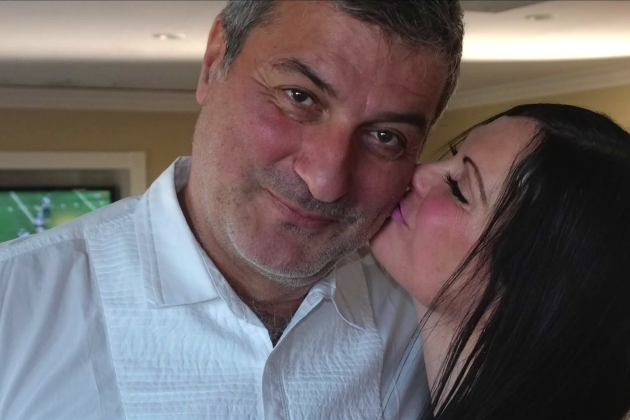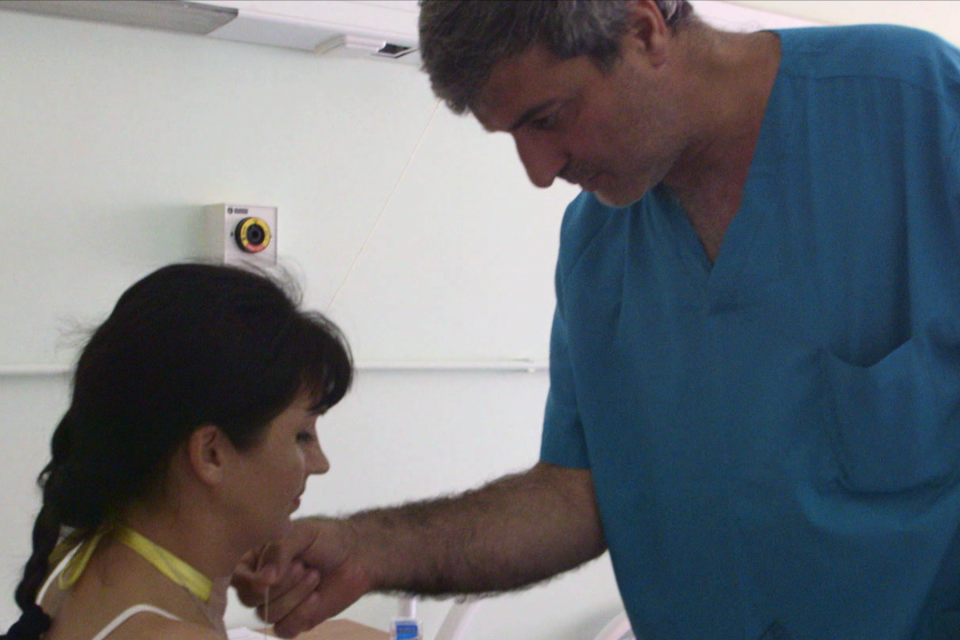The Dashing Italian Surgeon Who Seduced a Reporter to Mask His Bloody Crimes
- Oops!Something went wrong.Please try again later.

It’s hard to keep track of all the ethical violations depicted in Bad Surgeon: Love Under the Knife, the new three-part Netflix docuseries whose title suggests a straight-to-cable Nineties TV movie. Some of the sins here on display are, literally, mortal: Paolo Macchiarini, an apparent sociopath, a definite conman, and, worst of all, a surgeon, left a trail of corpses in the wake of his fraudulent stem cell procedures, in which he inserted plastic tracheas into people before even testing them on animals. Others are more venal, if extremely aggravating to journalists. Benita Alexander, a former NBC News producer, began sleeping with Macchiarini while she was still making a puff-piece documentary about the not-so-good doctor’s supposedly groundbreaking work. And, funnily enough, Macchiarini will be the subject of Dr. Death’s second season, premiering Dec. 21 on Peacock.
There’s plenty of outrage to go around here, as well as some unanswered questions. How did this suave butcher, a compulsive liar who lived multiple lives, come to occupy such an exalted place in the medical field? Hell, how did he even make it through med school? Bad Surgeon offers some hints, which mostly come down to issues of enabling. Officials at the Karolinska Institutet in Sweden, where Macchiarini was a visiting professor and director, helped cover up his deeds when they first became public. Like most conmen, he had a swagger that convinced everyone he knew exactly what he was doing. Meanwhile, what he was doing was using synthetic transplants which he seems to have known perfectly well didn’t work, and whose recipients, more often than not, died horrible deaths (seven of the eight patients he performed this procedure on died).
More from Rolling Stone
'May December': Natalie Portman and Julianne Moore's Twisted Tabloid Scandal
'American Symphony': Jon Batiste Gave Us the Best Music Doc of the Year
Watch the Trailer to Docuseries 'John Lennon: Murder Without a Trial'
The series makes the decision to give equal footing to Macchiarini’s duplicitous personal life, chiefly his whirlwind romance with Alexander, who somehow believed her beloved was a “super surgeon” whose clients included the Clintons, Barack Obama, and Pope Francis. “I’m a journalist,” Alexander reminds us more than once, but she didn’t really act like one until she realized her promised gala wedding in Italy, featuring a guest performance by Elton John and officiated by the pope himself, wasn’t going to happen. Alexander was taken for a ride by a smooth-talking, free-spending fraud, and it’s just about impossible to muster any sympathy for her. Hey, kids: Don’t sleep with your sources, even if they look like George Clooney. It’s not that complicated.

Initially, you might also reserve a little ire for the series creators, including director Ben Steele. Why are we spending so much time on this guy’s love life when there are matters of life and death to probe? Bad Surgeon even gets silly when we accompany Alexander to Barcelona, where she goes stunting with some girlfriends to discover Macchiarini – gasp! – has a woman on the side. But just when the series starts running the risk of trivializing its gravest storyline, it also starts coming into focus. This guy’s venomous shape-shifting was part and parcel of his lethal medical fraud, right down to his choice of seducing a journalist to help cover his ass. And that’s exactly what Alexander did, particularly when The New York Times broke the first big story on Macchiarini’s fraud, and his lover went into damage control. Then he broke her heart, and she went into what she calls “full investigative mode.”
The heroes of the story are the whistleblowers, especially Macchiarini’s colleagues who dug into his past, unearthed the horrible truth, and were rewarded with smears and harassment from higher-ups at Karolinska. There’s also an admirably dour Swedish documentary-maker, Bosse Lindquist, who does the due diligence rightfully expected of a journalist. None of these folks are rich, charismatic or powerful. But they value the truth, and they’re willing to do the legwork necessary to bring it to light.
But Bad Surgeon also makes plain that the media helped push the narrative of Macchiarini as savior. Look at the handsome doctor, saving lives with his cutting-edge methods! Except he wasn’t saving them. He was taking them. Perhaps the biggest takeaway here is that when something appears too good to be true, it probably is.
Best of Rolling Stone

